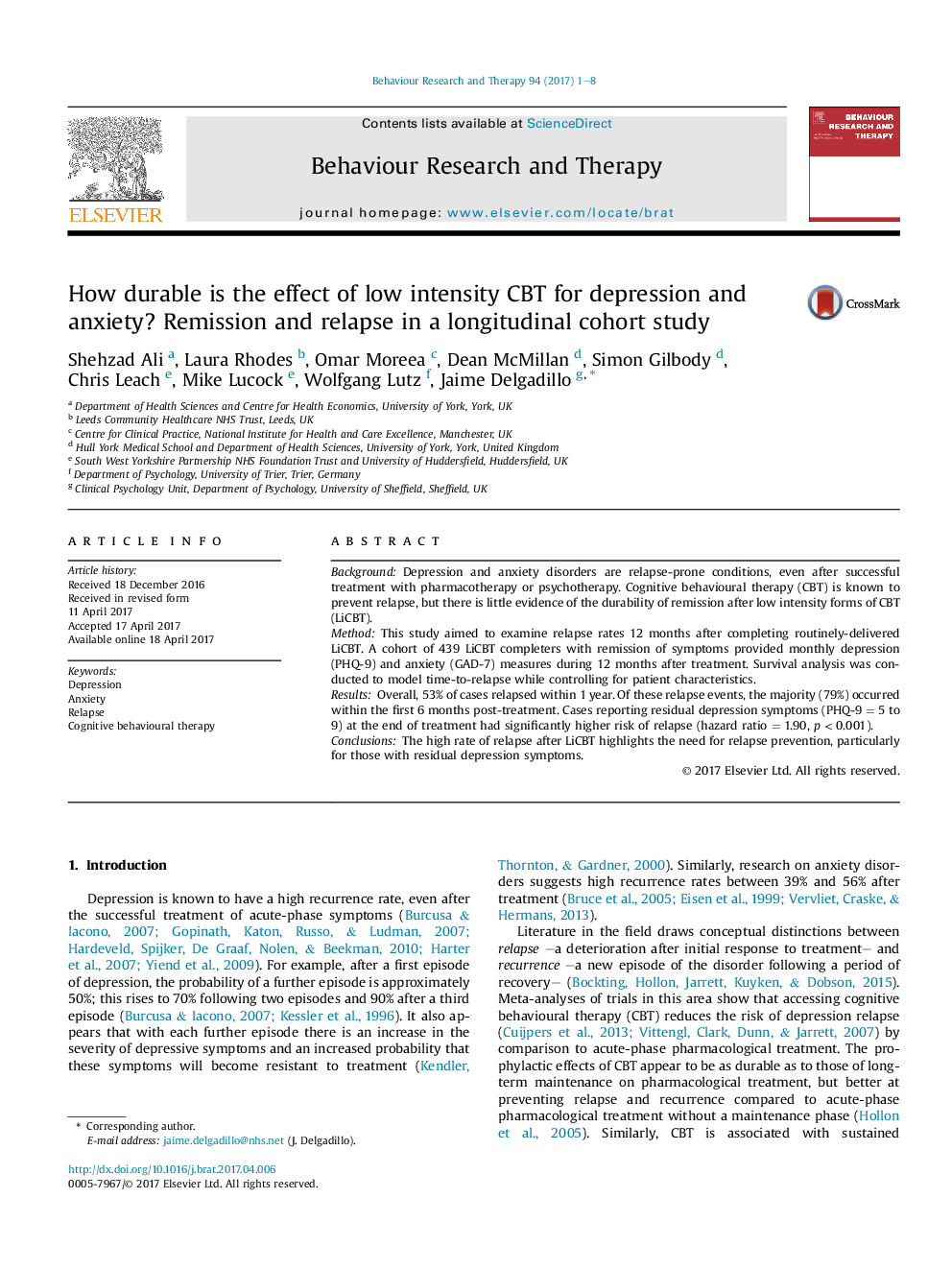| Article ID | Journal | Published Year | Pages | File Type |
|---|---|---|---|---|
| 5038230 | Behaviour Research and Therapy | 2017 | 8 Pages |
â¢This longitudinal cohort study involved 439 patients who completed low intensity CBT.â¢Patients provided depression and anxiety measures on a monthly basis up to 12 months post-treatment.â¢Approximately 53% of cases relapsed within 1 year.â¢Patients with residual depression symptoms at the end of treatment were twice as likely to relapse.
BackgroundDepression and anxiety disorders are relapse-prone conditions, even after successful treatment with pharmacotherapy or psychotherapy. Cognitive behavioural therapy (CBT) is known to prevent relapse, but there is little evidence of the durability of remission after low intensity forms of CBT (LiCBT).MethodThis study aimed to examine relapse rates 12 months after completing routinely-delivered LiCBT. A cohort of 439 LiCBT completers with remission of symptoms provided monthly depression (PHQ-9) and anxiety (GAD-7) measures during 12 months after treatment. Survival analysis was conducted to model time-to-relapse while controlling for patient characteristics.ResultsOverall, 53% of cases relapsed within 1 year. Of these relapse events, the majority (79%) occurred within the first 6 months post-treatment. Cases reporting residual depression symptoms (PHQ-9 = 5 to 9) at the end of treatment had significantly higher risk of relapse (hazard ratio = 1.90, p < 0.001).ConclusionsThe high rate of relapse after LiCBT highlights the need for relapse prevention, particularly for those with residual depression symptoms.
